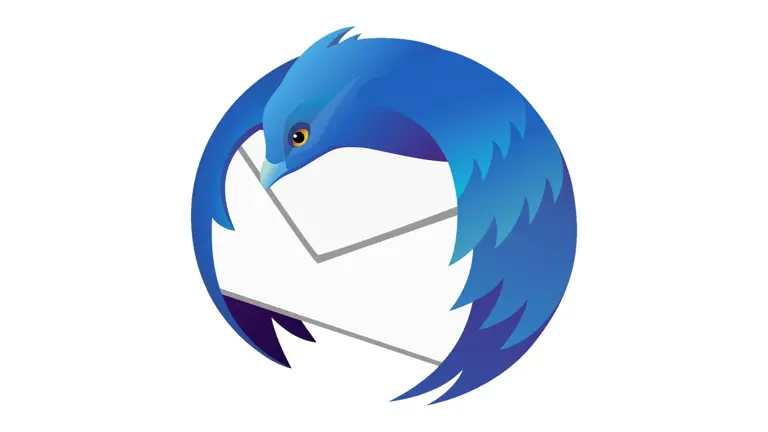Mozilla, the organization renowned for its Firefox browser and commitment to open-source software, is making waves in the tech world once again. On April 2, 2025, news broke that Mozilla is launching Thundermail, a new email hosting service designed to compete with industry giants like Gmail and Microsoft 365. This move marks a significant expansion for Mozilla’s Thunderbird ecosystem, signaling its ambition to offer a privacy-focused, open-source alternative in the crowded email market. Here’s what we know so far about this exciting development and what it could mean for users.
What is Thundermail?
Thundermail is Mozilla’s latest venture, an email hosting service built on the open-source Stalwart stack. It’s designed to complement the popular Thunderbird email client, which has long been a favorite among users who value customization and privacy. Unlike traditional email clients that rely on third-party providers, Thundermail allows users to create email accounts directly through Mozilla, with domain options including thundermail.com and tb.pro. The service aims to provide a browser-based experience akin to Gmail, with plans to eventually integrate features like calendars and contacts into the platform.
According to TechRadar, the service will initially be email-only but has broader aspirations. Ryan Sipes, Managing Director of Product at MZLA Technologies (Mozilla’s subsidiary overseeing Thunderbird), told Forbes that Thundermail is part of a larger “Thunderbird Pro” suite aimed at creating a comprehensive, privacy-respecting productivity ecosystem. This is a direct response to the dominance of Google and Microsoft, whose ecosystems often come with trade-offs in data privacy.
A Privacy-First Approach
One of Thundermail’s standout promises is its focus on user privacy—a cornerstone of Mozilla’s mission. Unlike Gmail, which has faced criticism for scanning emails to serve ads (a practice it officially ended in 2017 but still raises trust concerns), Thundermail vows not to harvest user data, train AI on messages, or inundate inboxes with advertisements. This commitment could resonate strongly with privacy-conscious individuals and organizations looking for alternatives to Big Tech’s offerings.
The Register reports that Mozilla is still exploring how to implement end-to-end encryption, a feature that could further distinguish Thundermail from competitors. While encryption is in testing, ensuring seamless key management between users remains a challenge. If successful, this could position Thundermail as a leader in secure email communication.
Pricing and Accessibility
Thundermail won’t be entirely free—at least not for everyone. Early access will be offered gratis to consistent Thunderbird community contributors, but Mozilla plans to charge for premium features like increased storage or advanced tools (e.g., the “Send” feature for large file transfers). Neowin notes that if the service gains traction, Mozilla intends to introduce free tiers with limitations, making it accessible to a broader audience while still monetizing power users. This hybrid model mirrors strategies used by competitors but aligns with Mozilla’s non-profit ethos of balancing sustainability and openness.
Users also have the option to host Thundermail services themselves, leveraging its open-source nature. This flexibility could appeal to tech-savvy individuals or businesses wanting full control over their email infrastructure.
Why Now?
Mozilla’s timing is intriguing. The email market is dominated by Gmail (with over 1.8 billion users) and Microsoft 365, leaving little room for newcomers. Yet, as How-To Geek points out, growing concerns over privacy and data security may create an opening for a player like Mozilla. Thunderbird has maintained a loyal user base despite earlier fears of discontinuation, and Thundermail builds on that foundation by addressing a key gap: the lack of a native email hosting service.
Sipes emphasized to Forbes that users have long been forced into “uncomfortable choices” due to the absence of integrated web services in Thunderbird. Thundermail and the broader Thunderbird Pro suite aim to rectify this, offering a cohesive alternative that doesn’t compromise on values.
Challenges Ahead
Entering the email hosting market is no small feat. Mozilla will need to overcome significant hurdles, including:
- Competition: Gmail and Microsoft 365 offer robust ecosystems with seamless integration of email, calendars, and productivity tools—features Thundermail is still working to match.
- User Adoption: Convincing users to switch from established providers will require not just privacy promises but also a polished, reliable experience.
- Scalability: Storage and infrastructure costs could strain Mozilla’s resources, especially as it scales to meet demand.
Despite these challenges, Mozilla’s track record with Firefox and Thunderbird suggests it has the expertise and community support to pull this off. The Stalwart Mail Server, powering Thundermail, supports modern protocols like JMAP, IMAP4, POP3, and SMTP, providing a solid technical foundation.
What’s Next?
For now, Thundermail is in its experimental phase, with a beta waitlist available at thundermail.com. Mozilla is “pushing hard” to expand the service, according to Thurrott.com, with contacts and calendaring on the horizon. Posts on X reflect a mix of excitement and curiosity, with users like
@TechRadarPro and
@Livenadav highlighting its potential to rival Gmail and Office 365.
As Mozilla refines Thundermail, its success will hinge on delivering a user-friendly, secure, and feature-rich experience. If it can capture even a fraction of the privacy-focused market, it could redefine Thunderbird’s role in the digital landscape.
Final Thoughts
Mozilla’s entry into email hosting with Thundermail is a bold step toward reclaiming space in a market long dominated by a few players. By prioritizing privacy, leveraging open-source technology, and building on Thunderbird’s legacy, Mozilla is poised to offer a compelling alternative. Whether it can dethrone Gmail or Microsoft 365 remains to be seen, but for users tired of Big Tech’s overreach, Thundermail might just be the breath of fresh air they’ve been waiting for.
Sources and Links:
- TechRadar: Mozilla launching “Thundermail” email service to take on Gmail, Microsoft 365
- Neowin: ICYMI: Mozilla is looking to challenge Gmail with “Thundermail”
- The Register: Firefox maker Mozilla prepares Gmail-like Thundermail
- Forbes: Mozilla Thunderbird Finally Takes On Gmail With New Email Service
- Thurrott.com: Mozilla Announces Thundermail and Thunderbird Pro Services
- How-To Geek: Mozilla Thunderbird Wants to Host Your Email, Too

